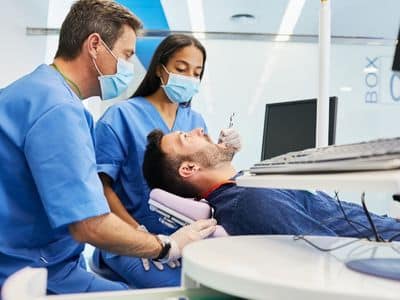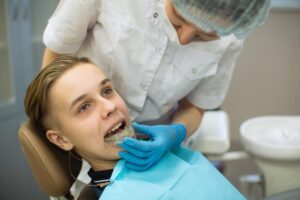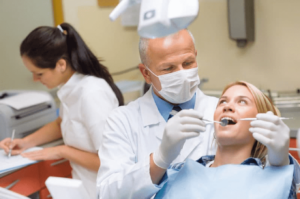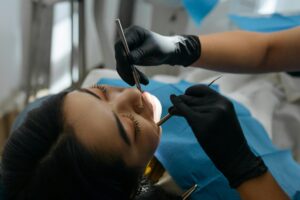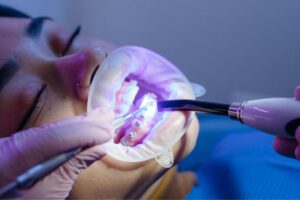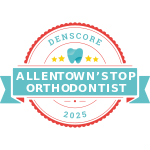What procedures does an Allentown orthodontist do? Are they a different species compared to professional dentists? Can I use the term “dentists” and “orthodontists” interchangeably? How can I find the best orthodontist in Allentown PA?
Dr. Bob Bryan often gets asked these and all the other teeth-and-gum-related things related questions. In this blog, we will be discussing what orthodontists are and how we differ from dentists.
And so, we compiled a list of frequently asked questions (FAQs) that we encounter from patients. We’ll answer these questions and hopefully provide useful information about orthodontists, braces, and general oral health so read on!
What is an Orthodontist?
An Orthodontist is a highly trained dental specialist who focuses on correcting the alignment of teeth and jaws. One must first complete four years of dental school and then two or three years of residency training in orthodontics.
Allentown Orthodontists use several different treatment methods, including braces, retainers, and other appliances, to straighten teeth and improve dental health. They work closely with patients to ensure that they are compliant with their treatment plans to achieve the best results.
What’s Their Difference with Dentists?
The main difference between an orthodontist and a dentist is that an orthodontist has completed additional training in straightening teeth. As mentioned earlier, orthodontists use braces, retainers, and other devices to correct dental problems and improve the appearance of teeth.
Dentists, on the other hand, focus on preventive care and treating common dental problems such as cavities. Both professionals are qualified to straighten teeth, but orthodontists have more extensive experience with complex cases.
In addition, orthodontists usually have access to the latest technology. This makes the process of straightening teeth more efficient and effective. It’s best to be mindful of how to call these professionals and whom to ask for advice from.
Will Braces Badly Affect Your Speech?
Many people, most of whom are youngsters, worry that wearing braces will have a negative effect on their speech. It is true that braces can take some time to get used to. But most people adjust quickly and experience no long-term problems with their speech.
In fact, most orthodontists find that their patients’ speech improves after they’ve had their braces removed! It’s because they help to train the teeth and jaw into their proper positions. This results in improved dental alignment and clearer pronunciation.
It’s normal to worry about how your braces might affect your speech. But rest assured that you’re likely to end up sounding even better than before.
Do Braces Hurt Upon Wearing Them?
There’s no sugarcoating it – braces can be tough to adjust to. Your mouth is going to feel sore for the first few days and you might even have trouble eating. But there’s no need to worry, the pain won’t last forever!
Most people report that their mouths feel much better after a week or so of wearing braces. And once you get used to the feeling of having something in your mouth, you’ll hardly even notice they’re there. So, if you’re thinking about getting braces, go ahead and take the plunge. Just be prepared for a little bit of discomfort at first.
Will I Be Able to Shorten the Length of Treatment If I Visit My Dentist More Frequently for Adjustment?
More frequent visits will NOT shorten the length of treatment. In fact, it may lengthen the time you are in treatment if we must make significant changes to the appliances.
Treatment is based on the severity of the tooth movement necessitated by your initial orthodontic examination. A timeline is developed for creating a treatment plan. So that you know how long we expect it will take to complete the necessary tooth movement.
More frequent visits may be required if you are not wearing your appliances properly. Or if you often experience a broken bracket from the way you eat or the foods you ingest.
What’s Your Best Tip for Avoiding Wires That Poke Through My Gums and Cheeks?
Anyone who’s ever worn braces knows the joys of wires poking through the gums and cheeks. But few things can be done to minimize the discomfort. First, you must make sure that you’re brushing and flossing regularly. Food particles can get caught in the wires and irritate the gums when that happens.
Second, use orthodontic wax on any sharp edges that are causing discomfort. The wax will help to smooth out the wire and provide a barrier between your gum and the wire.
Finally, see your orthodontist for regular adjustments. They’ll be able to spot any potential problems and make any necessary changes to your braces.
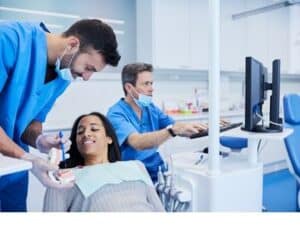
I Love Going to The Cinema, Can I Still Eat Popcorn Once I’ve Had My Braces On?
Popcorn is a great snack to enjoy at the movies, but it can pose a challenge for people with braces. The good news is that you can still enjoy popcorn while wearing braces. But you will need to take a few extra steps to protect your teeth.
First, be sure to remove all of the kernels from the popcorn before you start eating. Doing this helps prevent damage to your brackets and wires. Second, eat the popcorn slowly and chew carefully to avoid breaking any teeth.
Finally, brush and floss thoroughly after eating popcorn to remove any lingering pieces of food from your teeth. With a little care, you can continue to enjoy this delicious treat even while wearing braces.
What Type of Healthy Food Options Work Best with Braces?
For anyone with braces, the question of what to eat can be a tricky one. After all, you want to maintain healthy eating habits without damaging your braces.
In general, soft foods are a good choice. Anything that can be easily mashed with a fork is a good bet. Other good options include soups, stews, and smoothies. When it comes to snacks, soft fruits like berries and grapes are a good choice.
Yogurt, cheese, and peeled apples are also good options. And of course, there are always classic braces-friendly foods like mashed potatoes and macaroni and cheese. If you’re wondering what to eat with braces, the answer is: just about anything soft!
Conclusion
And that’s a wrap! We hope we were able to answer all your frequently asked questions, however uncommon or weird they may be. Remember, you can schedule a consultation with Dr. Bob Bryan if you have more questions regarding orthodontic treatment for Invisalign and Braces. He’s the best in the business and he’s always happy to chat about teeth so until next time, keep smiling!

